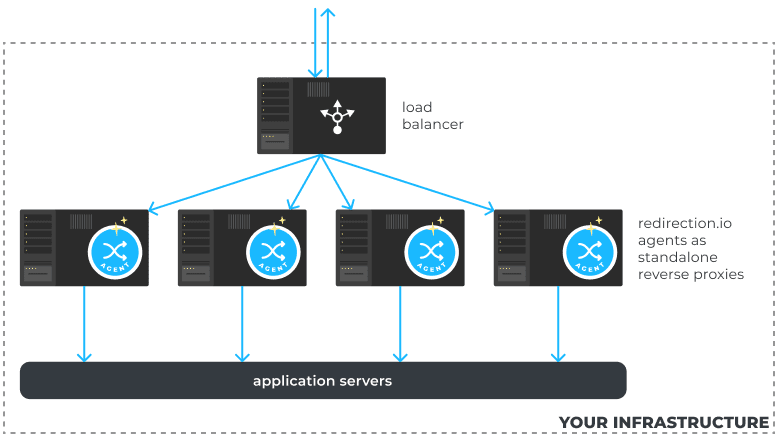The instructions below have been customized for your project "".
Customize these instructions for the project
How fast is it?
Speed and performance have always been in our minds when developing the redirection.io's agent and, more generally, the redirection.io platform.
It would be a nonsense to propose a tool able to handle thousands of redirection rules, if it had a major performance impact on a website. Hence, we have built a benchmark suite which compares the performance of our agent with other solutions of the market.
While nginx and Apache offer redirection capacities, we have measured that the performance slightly reduces when the web server must handle more than ~5k redirection rules, even if the rules are directly set at the VirtualHost level. In comparison, redirection.io is scalable and can handle several hundreds of thousands of rules for a single domain without major performance issues.
The order of magnitude of a requests analysis and matching is the microsecond (10-6 seconds, one thousandth of a millisecond). Our benchmark suite includes load testing and several rulesets sizes, to test the performance and concurrency capacities of the redirectionio agent.
We do not provide precise numbers because measurements may vary depending on the ruleset, the type of proxy used (standalone, nginx, Apache, etc.), network conditions, etc., but the overall performance impact of using redirection.io should remain marginal. We constantly monitor the performance of our agent, as we believe that SEO improvements do not have to come at the price of speed or performance. Be sure that efficiency and speed are a central topic in the way redirection.io is built.
Should your platform need to support more traffic, you can of course scale your infrastructure and add agents (which is strongly advised for redundancy and high availability). As an example, here is a schema if redirectionio-agent is used as a reverse proxy (but you can achieve similar layouts when using redirection.io using the nginx or the Apache2 modules):
